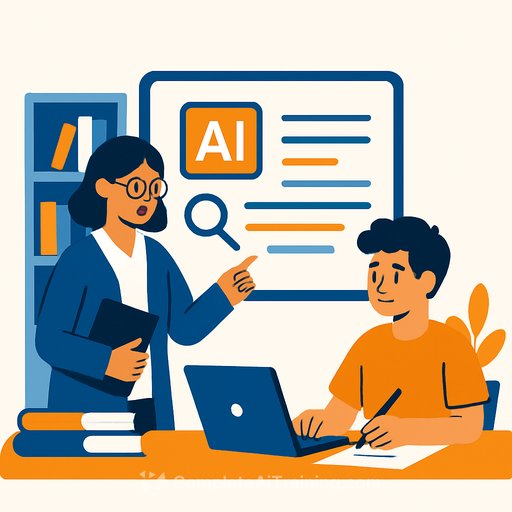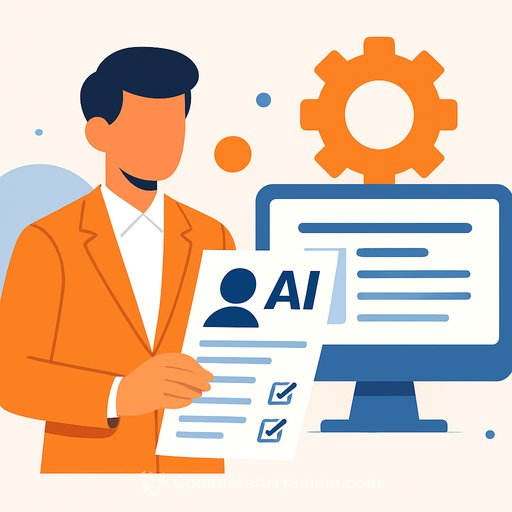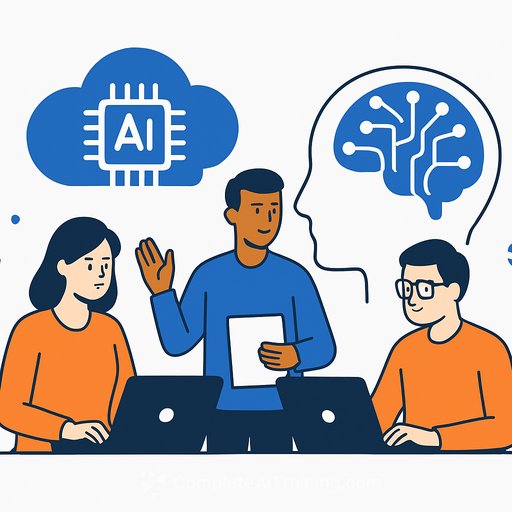Anatomy of a Term Paper: Using Information Literacy Skills with AI
How can librarians support students in building strong information literacy skills and applying them effectively in an AI-driven environment? By guiding students through each stage of researching and writing a term paper, librarians can help them use their skills thoughtfully alongside AI tools.
Understanding Information Literacy
Information literacy involves the knowledge, skills, and attitudes that enable learners to engage productively with information. This is more crucial than ever in an AI context, where users must think critically and avoid overreliance on AI-generated content. Librarians play a key role in helping students develop these reflective skills to interact responsibly with AI tools.
The ACRL Information Literacy Framework defines information literacy as “the set of integrated abilities encompassing the reflective discovery of information, the understanding of how information is produced and valued, and the use of information in creating new knowledge and participating ethically in communities of learning.”
Is AI Literacy an Information Skill?
In an AI-enhanced information landscape, reflective thinking is vital. Metacognitive skills—the ability to think about one’s own thinking—are essential when working with AI. While AI tools assist in information tasks, it remains the student’s responsibility to decide where and how to find, use, and evaluate information.
Librarians can foster these metacognitive skills, enabling students to collaborate effectively with AI. The ACRL framework highlights six key frames of information literacy:
- Research as inquiry: Research evolves through iterative questioning.
- Searching as strategic exploration: Searching is a nonlinear, iterative process.
- Authority is constructed and contextual: Authority depends on the information need and context.
- Scholarship as conversation: Research is an ongoing dialogue across disciplines and time.
- Information creation as a process: Writing is iterative and shaped by purpose and audience.
- Information has value: Ethical use and attribution are central to scholarship.
A core theme is the iterative nature of research. This mindset is especially important when using AI tools. Understanding how information is created and shared remains relevant regardless of technological advances.
Reflective Information Journeys and Librarians’ Support
Consider an undergraduate student working on a term paper. Here’s how librarians can support her at each stage of the research process:
1. Brainstorming and Research Question Development
The student starts with an AI chatbot to get an overview, generate keywords, refine her research question, and clarify concepts. She must relate the chatbot’s suggestions to her course material and verify key definitions using credible sources. Librarians can teach students how to collaborate with AI chatbots effectively while emphasizing critical evaluation. Workshops that encourage reflection on prior knowledge and course content help students refine their questions thoughtfully.
2. Searching Strategically and Evaluating Authority
Armed with insights from the chatbot, the student searches databases and AI-powered research tools like Scite and Elicit, as well as citation mapping tools such as Research Rabbit. She notices how search results vary with different strategies. Evaluating sources involves considering authorship, source type, and academic level, mixing scholarly and non-scholarly materials. If results fall short, she revisits her research question.
Librarians play a vital role in teaching effective search strategies and source evaluation. Introducing AI tools helps students find sources beyond keyword matches. As AI-generated summaries become common, librarians guide students to critically assess these outputs and reflect on their relevance to the research question, fostering a discerning mindset.
3. Synthesising Findings
The student organizes sources with reference management software and uses AI summarization to extract key points. She creates comparison tables to spot patterns, contradictions, and gaps in the literature. This process reveals emerging themes and disciplinary approaches. She must consciously connect arguments to literature while remaining alert to AI biases that might amplify dominant voices and overlook marginalized perspectives.
Librarians can teach effective use of reference tools and AI summarizers. Facilitating discussions on diverse perspectives encourages students to appreciate interdisciplinary dialogue. Highlighting potential AI biases prompts students to seek underrepresented viewpoints, reminding them that scholarship is a conversation involving multiple voices.
4. Writing and Proper Attribution
As the student drafts her paper, she outlines arguments supported by evidence. AI tools can assist with language and style, but the student should lead with her own ideas and writing before using AI for refinement. Librarians provide guidance on ethical scholarship, proper citation, and transparency in AI use. Emphasizing the iterative nature of academic writing encourages students to craft their work with intention and clarity.
Reminders for Librarians
Librarians have long supported information literacy, and their role is evolving with AI’s impact on how students engage with information. To meet this challenge, librarians should:
- Stay updated on AI tools: Understand the latest AI technologies, their strengths, and limitations. This knowledge helps librarians introduce appropriate tools and instruct students on responsible, reflective use.
- Teach what to delegate to AI and what not to: Help students identify specific problems before choosing AI tools. Guide them in planning when and how to use AI during research.
- Emphasize the iterative nature of search: Remind students that research is rarely linear, especially when quick AI answers tempt shortcuts.
- Reinforce core information literacy concepts: Foundational knowledge about source types, scholarly communication, and ethical use remains essential alongside AI skills.
In an AI-enabled academic environment, strong information literacy empowers students to engage with information confidently and ethically. By focusing on reflective decision-making, critical evaluation, and ethical use, librarians help students thrive alongside AI tools.
Your membership also unlocks:




